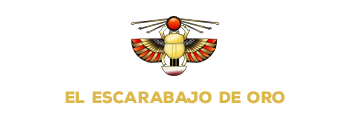AZTLAN CULTURAL CENTER
of Psychology, Philosophy, and Humanities.
Dir.: León Azulay
Civil Association I.G.J. No. 748

Learning Jung's Psychology
When talking about the Mind and mental activity, Jung preferred to use the terms Psyche and Psychic instead of mind and mental because the latter are primarily associated with the conscious, while the words Psyche and Psychic are used to encompass both the conscious and the Unconscious. Psyche comes from Greek and is synonymous with Soul; Jung says that psychology, therefore, must be the study or knowledge (logos) of the human Soul (psyche).
While our Ego believes it knows itself and tends to deny the Unconscious as an autonomous entity, everyday behaviors tend to contradict this opinion of the Ego. Generally, people do not recognize the importance of unconscious phenomena in themselves because these have no relationship of continuity with the Ego or Waking Consciousness. As Jung says: if unconscious phenomena become present in our Ego's behavior, such as an emotional outburst out of all proportion, no one unaware of the nature of unconscious motivation could explain them. In these cases, we often say, "I don't know what happened to me" or "I was beside myself" or "I was unrecognizable." Something very important in Jung's Psychology: Unconscious manifestations are not limited to pathological cases; "normal" people (that is, those not suffering from mental illnesses) are always acting based on motives of which they are not aware at all.
The unconscious aspect of the Psyche is different from the conscious, but it compensates. That is, the Unconscious has a compensatory function; a simple example of this is through dreams, where someone who is sick dreams of being completely healthy and brimming with energy.
In Jung's Psychology, the unconscious is not a byproduct of the conscious (in contrast to Freud, who considered the subconscious as a repository where everything repressed by the Ego hides). For Jung, the conscious mind or Ego "has its basis and is the result of an Unconscious psyche preceding the conscious and functions with or despite the Ego." That is, in Jung's Psychology, the unconscious precedes and preforms the conscious. This is why it is our moral duty to know and explore our Unconscious through a "second education," which will not only allow us to know ourselves but also achieve an increase in awareness and a higher level of integrity in our total personality (which is still split between the conscious and the unconscious). Jung calls this possibility of psychic evolution the process of individuation.
Finally, Jung insists on the reality of the Psyche, stating that our inner world is no less real than the physical one, and just as the physical body is subject to a structure and laws, the psyche, our inner world, responds to a determined structure, and everything that happens within us holds great value and is worthy of being studied and understood (as much or more than the reality of the surrounding external world).
















